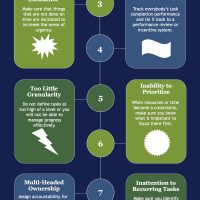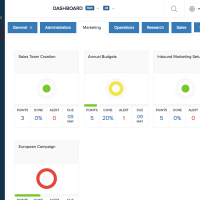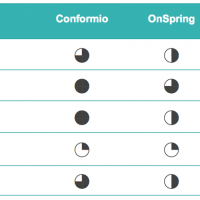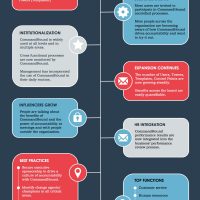Escalation is a very powerful tool to make sure things get done at work. However, it should be used carefully and judiciously.
Insights
We have put together a succinct infographic to help our clients drive accountability in the workplace by avoiding the following issues when using task management and/or accountability software.
The gig economy is here to stay. Intuit estimates that by 2020, as many as 40 percent of Americans will be contingent, contract, or “gig” workers. Gig workers can be freelancers, independent contractors, or any other outsourced employees who are hired on a per-project basis.
Some of these contingent workers choose to work outside of a payroll system either as full-time freelancers or as part-time workers who supplement their income by picking up gigs. Others take contingent jobs out of necessity even though they would prefer full-time employee status.
It has been proven that, if done right, gamification may increase engagement. What about taking these gaming concepts into the workplace to make accountability and the tracking of employee performance more fun?
We live in a world that measures everything. A world that tells us that metrics are important. However, we often fall on the trap of measuring and reporting on things that are either not useful or not used by anybody.
In the wake of the UK Parliament’s recent network security attack, it’s clear that no matter how well-designed our IT security systems and internal controls are, there’s always a risk of your organization falling victim to a cyber threat.
Deciding to implement a comprehensive information security framework like ISO 27001 or COBIT is not a trivial thing. These frameworks are comprehensive, cross-functional, broad reaching, and culture-changing. Here are 3 compliance software tools to help you through the process.
With such a huge proliferation of task management, getting things done (GTD) apps, and checklist software, it’s no surprise that many attempts have been made to try to simplify the evaluation and selection process.
But have you ever tried to find something in Capterra, one of the most comprehensive software catalogs out there? There are 50+ software solutions listed in each of the following categories: workflow management, task management, and project management.
How are you supposed to compare or evaluate what’s best for your specific situation?
CommandHound power users follow a predictable path towards the institutionalization of a culture of accountability in the workplace. Here is a quick Infographic that shows you the typical path they follow.
Why do some of your employees get all tasks done on time and as expected, but others can’t seem to have the same success rate, even when those tasks are critical and are designed to avoid, transfer, or reduce risks to the business?
Is it their motivation? Their DNA? Is it compensation? Is it culture?








